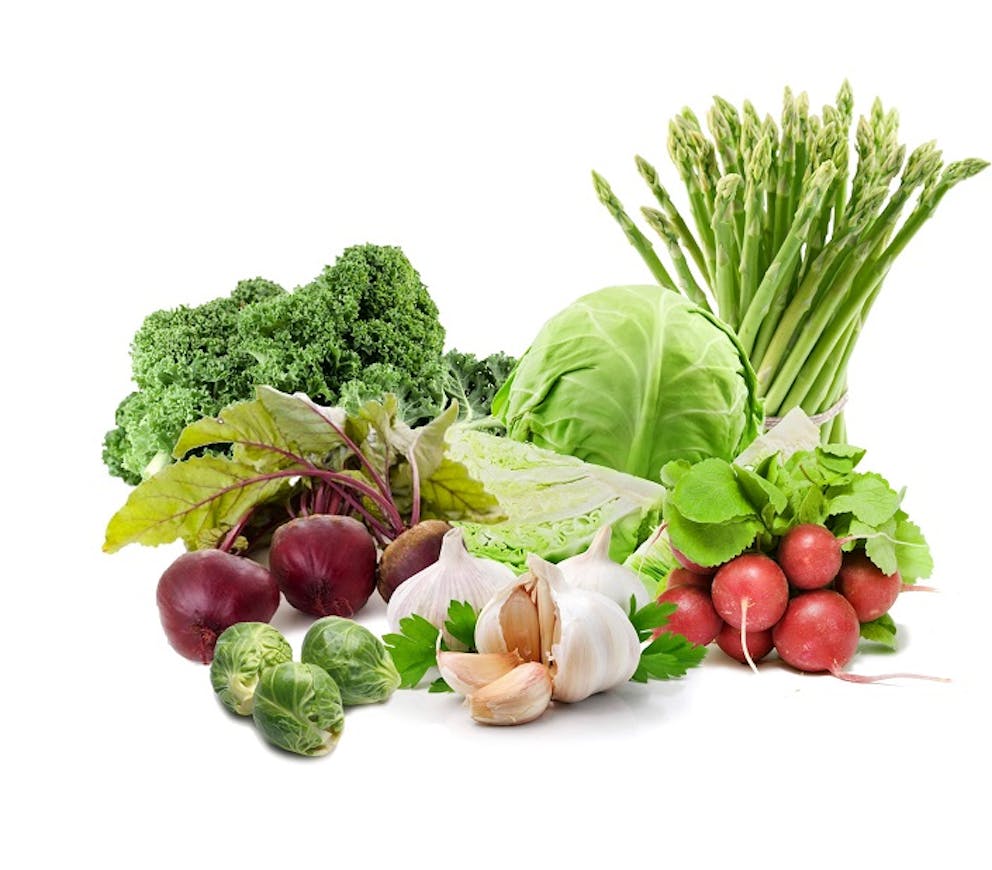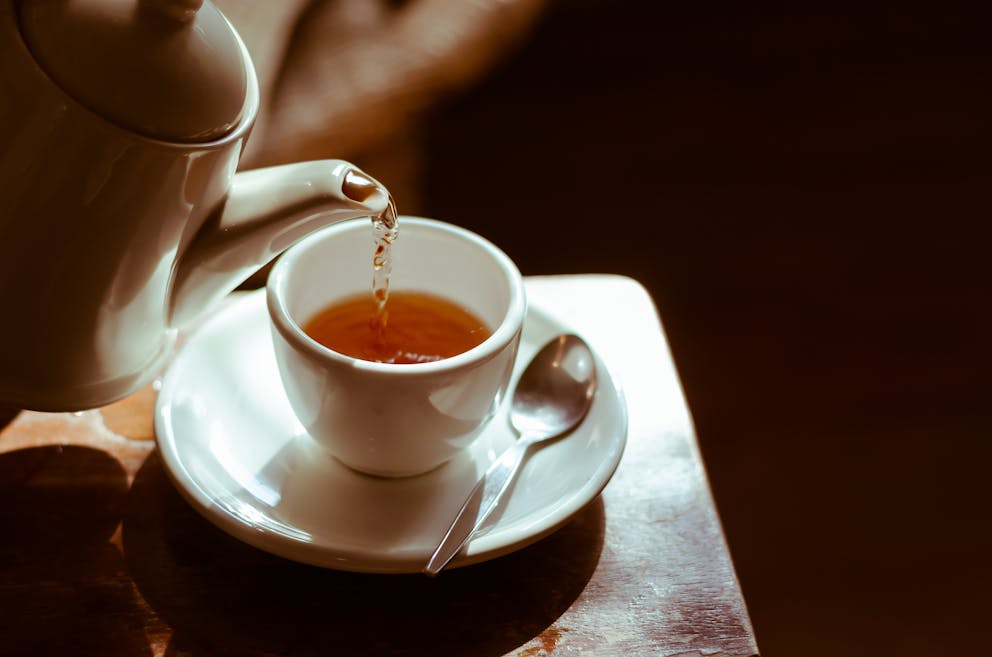The #1 Remedy for Heart Palpitations
Your heart's drumming like it’s got its jazz band in there, skipping beats and throwing in solos when you least expect it. Welcome to the world of heart palpitations, where each thump could feel like a question mark about your health.
You're not alone if that internal rhythm section gets out of whack sometimes. But before we talk pills or panic, let's chat about some natural tune-ups for your ticker.
Imagine taming those wild beats with just what Mother Nature serves up—magnesium-rich greens on your plate, stress-busting techniques up your sleeve, and hydration as simple as a glass of water. Ready for the secret sauce to calm that inner percussion? Keep reading; the beat drops right back into the groove naturally.
Understanding Heart Palpitations and Their Common Causes
You feel your heart skipping a beat, then racing like it's trying to win the Kentucky Derby. Welcome to the world of heart palpitations, where your ticker marches to its drumbeat. But what sets off this internal jazz festival?
Sometimes, it’s as simple as that extra cup of coffee or a merlot.
The Role of Diet in Triggering Palpitations
Your morning latte could be more than just a wake-up call; caffeine is an express ticket to palpitation city for some.
And while we're on the subject of diet—gluten may not only ruin your toast but also jangle your nerves and flutter your heart if you've got sensitivities hiding up your sleeve.
Bite into something you're allergic to, and bam. Your immune system goes on defense faster than linebackers on Super Bowl Sunday—which can mean palpitations for you.
The Impact of Stress and Environmental Factors
Facing stress head-on might sometimes make you feel invincible—but guess who disagrees? Your overworked heart.
Also making our list: hyperthyroidism – because when thyroid hormones are partying hard, so is your heartbeat—and let's not forget those sneaky electromagnetic fields from every tech gadget around us possibly pulling strings behind the scenes.
And before wrapping up this little pow-wow—exercising too much isn’t always better; sometimes less is more when keeping our hearts happy.
The Magnesium Connection to Heart Health
Think of your heart as the drumbeat of a band—it needs to keep a steady rhythm. But when it starts skipping beats, like an amateur drummer at his first gig, we call those scary moments palpitations. Surprisingly, one silent band member in this scenario is often magnesium.
Magnesium's job isn't glamorous, but boy, is it crucial; picture it as the behind-the-scenes tech that keeps the show running smoothly. Yet about two-thirds of us are running low on this star mineral—yes, 66% are deficient.
That’s more than just a few people forgetting their lines; it's practically an epidemic.
Blood tests can be deceiving little critters, too—they might tell you your magnesium levels are fine because they don’t see what’s hiding inside cells where most magnesium likes to hang out.
Stress doesn’t help either; it gobbles up our magnesium faster than kids with candy on Halloween. And let's not even start on medications and refined foods—they're like the uninvited guests who crash the party and eat all your snacks (aka your precious magnesium stores).

The Importance of Adequate Vegetable Intake
Think you're getting enough greens? Think again. Most folks barely hit 1.5 cups daily, not even close to the salad bowl of nutrients our hearts crave for a steady beat. It's like attempting to triumph in a competition with an empty fuel container—doesn't make much sense.
Here’s the kicker: plants and salads are where it’s at for magnesium—a heart health MVP that most people don’t get nearly enough of. You wouldn't skip charging your phone, so why do it to your ticker?
Without sufficient magnesium from veggies, we might as well roll out the red carpet for unwelcome palpitations.
We need this mineral in our corner because it keeps our hearts humming smoothly instead of fluttering like a confused butterfly. But let me tell you something shocking: around 66% of us are skimping on magnesium.
And if you think that daily multivitamins have your back, guess again—blood tests often miss the mark since they can’t see what’s happening inside those cells where magnesium likes to hang out.
Natural Remedies for Managing Heart Palpitations
When your heart decides to throw a party without inviting you, it can be quite an unwelcome surprise. But before you RSVP with anxiety, consider reaching into nature's medicine cabinet. Plenty of natural remedies could help keep those palpitations from crashing your calm.
Increasing Dietary Magnesium
You might not think much about magnesium until your heart skips a beat. This mineral is like the chill friend who keeps everyone calm—your heart included—yet most folks don't hang out with him enough.
It turns out that an impressive 66% of us are skimping on this nutrient, and our hearts aren’t happy about it.
To up your magnesium game, go green—leafy greens, to be precise. Spinach and kale have loads of it, so do nuts and seeds when ready for a crunchy snack.
Potassium-Rich Foods for Heart Rhythm
If magnesium is the excellent friend at the party, potassium is its wingman—the Robin to your heartbeat’s Batman. Together, they team up to maintain that steady rhythm we all crave but often disrupt with modern-day vices like caffeine and stressors galore.
Munching on avocados or bananas can boost potassium faster than Superman changing outfits in phone booths. And while we're talking superheroes – isn't food as medicine just super?

Herbal Supplements and Teas
Last but not least, let's talk herbs because Mother Nature knows best. Herbal teas such as hibiscus or valerian root might sound more like characters from Shakespearean plays, but trust me—they’re legit heroes in soothing erratic heartbeats.
Sipping some calming chamomile tea could also tell those palpitations "not today." giving peace back to your chest—and maybe even bringing better sleep.
The Role of Hydration in Heart Health
It's sleek, it's powerful, but without enough oil—in this case, water—it won't be winning any races. Hydrating isn't just about slaking thirst or keeping your complexion smooth; it's essential for maintaining a regular heartbeat.
It plays a crucial role in maintaining that steady rhythm under your hood.
So, how does water keep the beat going? When you're low on fluids, every part of you dries up a bit—including your blood.
Thick blood is to veins what rush-hour traffic is to highways: it slows everything down and can even lead to gridlock—or palpitations if we stick with our body-as-a-vehicle metaphor.
Adequate hydration helps ensure smooth sailing for blood flow and supports proper electrolyte balance—think sodium and potassium—which are like spark plugs for our internal engines.
A well-hydrated system allows these minerals to conduct electricity better across cell membranes, keeping those heartbeats regular.
Lifestyle Adjustments to Prevent Palpitations
You're lounging after a hearty meal, and suddenly, your heart decides to throw a party without your permission. Not fun, right? Heart flutters may surprise you out of the blue. But don't worry; tweaking your daily routine might keep those uninvited flutters at bay.
Exercise Considerations for a Healthy Heart
We all know exercise is the golden ticket to cardiovascular health, but it's like giving that ticket away if overdone. Strike a balance with moderate activities that make your heart happy without pushing it too hard.
A brisk walk or casual bike ride can do wonders compared to running marathons every other day. Remember Goldilocks' wisdom—aim for 'just right.'
Stress Management Techniques
Your mind and heart are besties—if one's stressed, so is the other. So why not treat them both with some relaxation techniques? Meditation could be their spa day—a few minutes of deep breathing each day may help soothe those wild beats.
You might also try yoga or simply laughing more often because, let’s face it—it’s harder for stress to stick around when you’re cracking up.
Understanding Food Allergies and Sensitivities
Last but not least, food sensitivities are like frenemies for our ticker—they seem harmless until they stir up trouble in the form of palpitations. Keep an eye on how different foods affect you, and consider chatting with a nutritionist who can help identify potential culprits.
Conclusion
So you've journeyed through the thicket of heart palpitations and emerged with some nature-crafted tools. Natural remedies for heart palpitations are in your grasp—think magnesium-rich munchies, potassium-packed plates, and hydration that's a sip away.
Remember this: Your diet is more than just fuel; it’s rhythm control for your heartbeat. Toss those greens into every meal. Feel this: Stress isn't just in your head—it echoes in your chest.
Master stress relief like a pro to keep beats regular.
Know this: A balanced lifestyle keeps the tempo steady, from moderate exercise to pinpointing pesky food allergies.
Keep it simple, stay consistent, and watch as natural solutions set a smoother pace for your heart.
Supporting Data
https://pubmed.ncbi.nlm.nih.gov/28552551/
https://pubmed.ncbi.nlm.nih.gov/20362720/
https://pubmed.ncbi.nlm.nih.gov/15888695/
https://pubmed.ncbi.nlm.nih.gov/9832101/
Previous blog
6 Foods That Can Kill YouTags

Popular
08/21/2024
55.7K views
02/23/2025
46.8K views
11/18/2024
281.1K views
03/18/2024
11/21/2022




